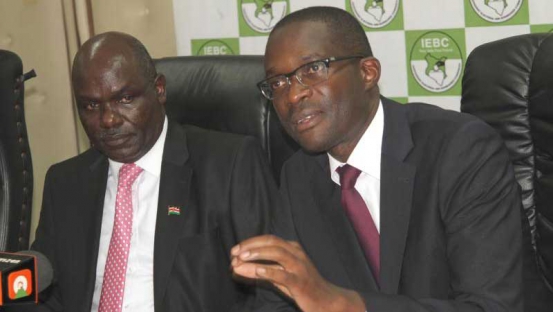×
The Standard e-Paper
Kenya’s Boldest Voice

The Independent Electoral and Boundaries Commission (IEBC) could have trouble meeting its own deadlines following fears that the technology to be used in the October 17 repeat polls may not be ready.
It has emerged that the technology used to identify voters and transmit results, the Kenya Integrated Elections Management System (KIEMS), will have to be upgraded for the repeat elections to ensure a credible process.